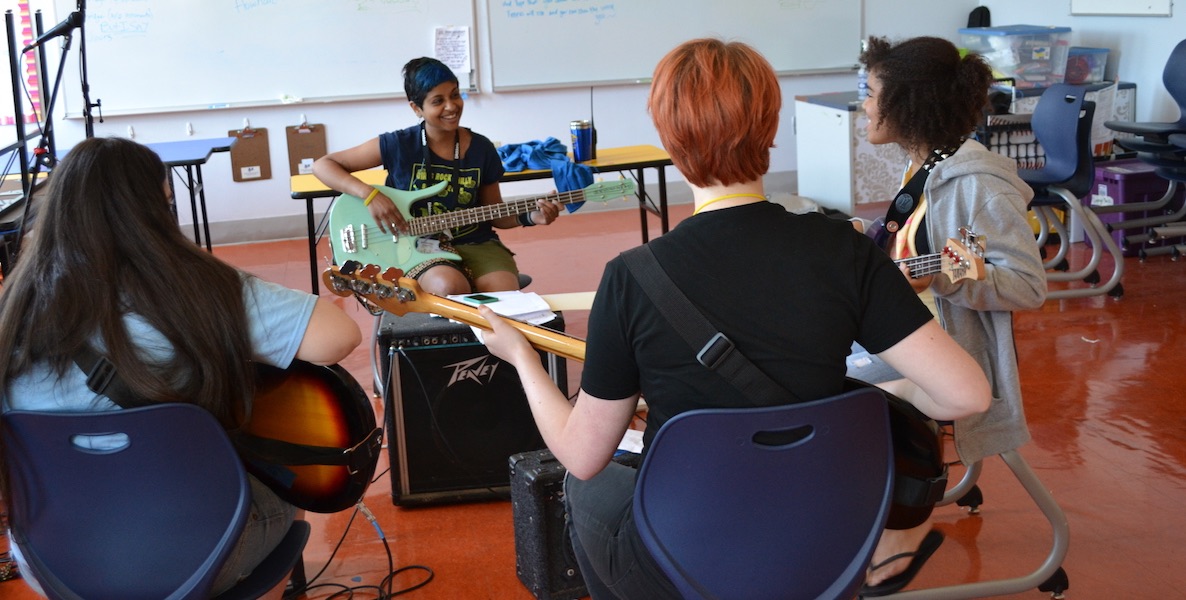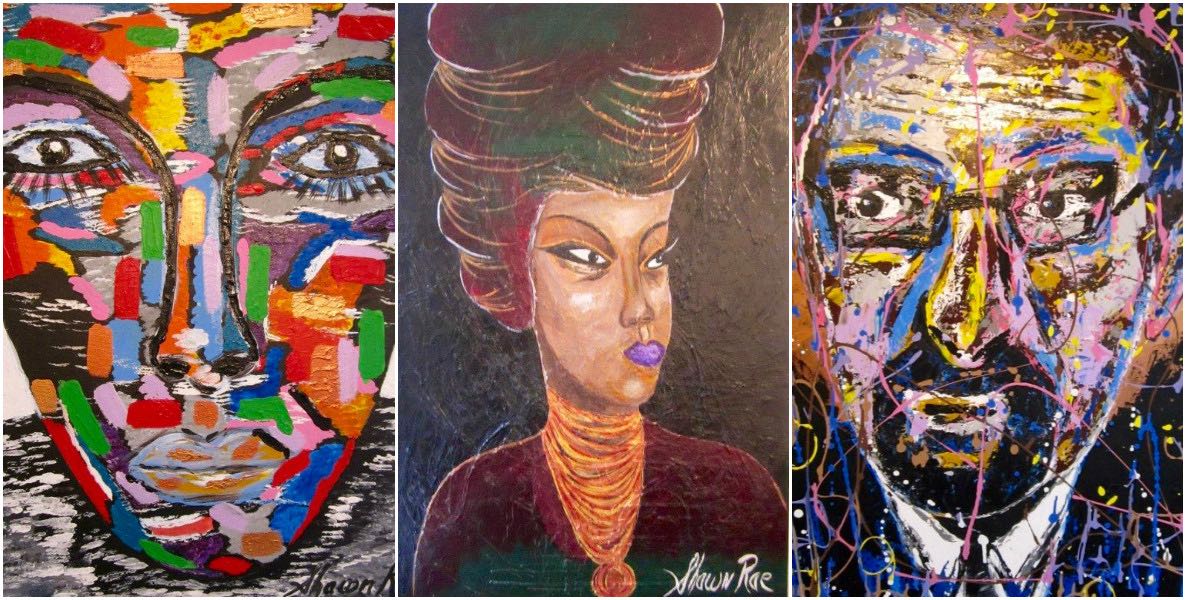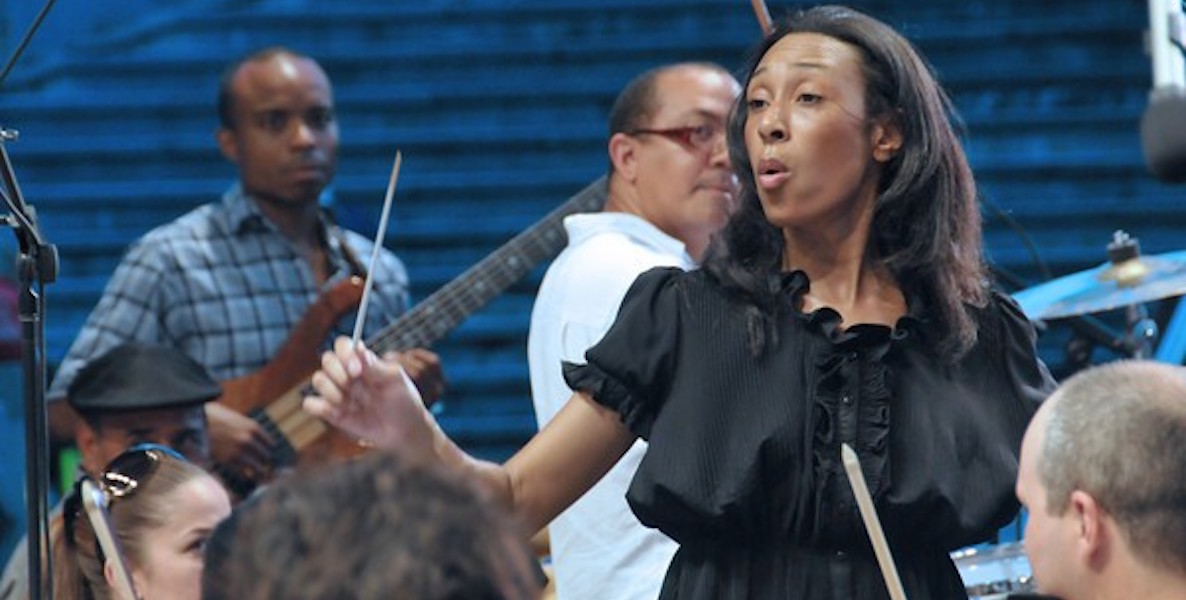Jeri Lynne Johnson fell in love with classical music when she was four years old at music camp. She dreamed of becoming a conductor by age seven. She won an international conducting prize while still a student at University of Chicago, and then secured an assistant conducting job at the Chamber Orchestra of Philadelphia, while looking for a company to lead herself.
Johnson had everything—the degree, the passion, the proven talent. But there was something about her that orchestras around the country could not get past: She’s African American.
After several years of unsuccessfully applying for jobs as a conductor, Johnson in 2007 asked a California selection committee for feedback. They praised her musical skills, and her ability to lead an orchestra. But they wouldn’t hire her because “they flat out said I did not look like what our audience expects our conductors to look like,” she recalls.
The musicians are African American, white, Middle Eastern, Latino and Asian, and the music is multicultural, as well. It heralds back to a century ago, when classical music was a unifier, something that immigrants from throughout the world could enjoy together in their new cities.
Johnson was shocked, and angry. So she decided to turn her back on the staid, old world of classical music and create her own opportunities, for herself and future generations.
In 2009, Johnson formed the Black Pearl Chamber Orchestra, the first classical orchestra in the country run by an African American woman, with the explicit intent to make the music accessible, affordable and understandable to all Philadelphians.
“If you love classical music then this music belongs to you, it doesn’t just belong to people who’ve studied this for years or the composer or the orchestra musicians,” says Johnson. “Whoever loves the music itself, the way of seeing 90 or 100 musicians on stage together, no matter your age or your income level, everyone should belong to that magic.”
The Philadelphia Orchestra, with its young, dynamic conductor of four years, Yannick Nézet-Séguin, has made an effort to broaden its audience, and it may be working. But to attend a concert by the city’s premier orchestra is still to experience a world that is beyond most Philadelphians. The tickets are expensive; the audience is mostly white, and mostly older; the musicians are almost entirely white (or Asian). Except for particular events, there is no interaction between performers and audience, and there’s an unspoken rule of formality that can be daunting, even to seasoned concert-goers.
With Black Pearl, Johnson intentionally breaks down those barriers. She created a program called iConduct, in which audience members are invited to join the orchestra on stage to see a demonstration of what a conductor actually does during a performance. It began as a one-off but there was so much interest in its early stages, Johnson decided to apply for a grant. The program was chosen three years in a row (2010 to 2012) as winner of the Knight Foundation’s Knight Cities Challenge for building community through innovation in the arts. The $25,000 award money was used to propel the program forward. The “iConduct model” gained popularity and Johnson says it was later adopted by the Philadelphia Orchestra, among others.
This grant opened doors for the program, bringing classical music to more venues. Black Pearl performed Beethoven’s 5th, one of classical music’s most well-known piece, at public, open and accessible spaces such as The Barnes, The Kimmel Center, The Mann Center and the outdoor space in front of City Hall. They have played cathedrals and music schools, with Johnson mingling with the audience at intermission. (Johnson also guest-conducts outside Philly, most notably at a pair of Carnegie Hall shows backing Jay-Z in his debut there, for a several hundred dollar benefit concert.)
“If you love classical music then this music belongs to you,” says Johnson. “Whoever loves the music itself, the way of seeing 90 or 100 musicians on stage together, no matter your age or your income level, everyone should belong to that magic.”
The Black Pearl has 40 musicians, and performs about seven concerts a year. What makes it so ground-breaking is its emphasis on diversity in race, age and gender, both on-stage and off. Her musicians are African American, white, Middle Eastern, Latino and Asian, hailing from places like the Curtis Institute and Juilliard, and the music is multicultural, as well. While traditional orchestras struggle to replenish their audiences, Black Pearl launched with exactly the audience others are trying to capture. It heralds back to a century ago, when classical music was a unifier, something that immigrants from throughout the world could enjoy together in their new cities.

“It truly reflects the diversity of America and that’s kind of one our hallmarks in terms of the audience we attract,” Johnson says. “Making classical music accessible to everyone else is to see people who look like them playing the music.”
Johnson started Black Pearl in the wake of the financial crisis, but the Maestra says she could not have chosen a better time. (Black Pearl is a nonprofit supported by private and institutional donors.) The Philadelphia Orchestra and others were filing for bankruptcy, while she was in start-up mode, with nothing to lose. “Just when everybody else was shutting their doors, I was hiring musicians,” Johnson says. “We built a reputation of being a solid organization when many were not [able to be].”
Johnson, who just had a baby, is on maternity leave. But her Black Pearl Orchestra plays on. See Black Pearl Side by Side with Trowbridge Chamber Orchestra, a performance and orchestra meet-up, on May 15th at the Settlement Music School in Queen Village. They’ll perform Bloch’s Concerto Grosso for Piano and Strings.
Photo Header: Courtesy of Black Pearl Chamber Orchestra






